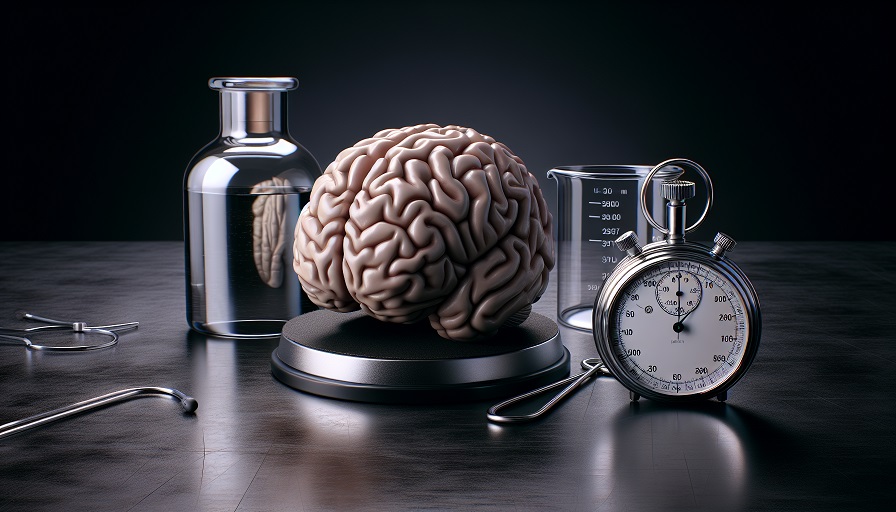
Short answer: It can – mostly in harmful ways. Eating clay or soil can introduce heavy metals and pathogens and can block absorption of key nutrients (iron, zinc), which may impair cognition over time. If you crave non-food substances, seek medical guidance for possible deficiencies or pica.
Contents
What Is Geophagy?
Geophagy is the intentional consumption of earth materials such as clay, soil, or chalk. It appears across cultures for varied reasons – tradition, perceived detox benefits, pregnancy cravings, or relief of nausea. Despite anecdotes, modern safety concerns are significant and often overlooked in online discussions.
Why People Report Doing It
Common motives include managing morning sickness, “detox,” mineral supplementation, or craving specific textures (dry, chalky). Some clays can bind toxins in laboratory settings, but those same binding properties can also capture essential nutrients in the gut, making deficiencies more likely.
How Geophagy Can Affect The Brain
The brain depends on steady supplies of iron, iodine, zinc, B-vitamins, and glucose. Geophagy can compromise this in three main ways:
Nutrient Binding And Malabsorption
Clays (for example, bentonite) have high surface area and negative charge that bind minerals and some medications. Chronic intake can reduce absorption of iron and zinc – nutrients required for attention, memory, and myelination. Deficiencies may present as fatigue, brain fog, and slower processing.
Contaminants And Toxins
Soils and unregulated “edible clays” can contain lead, arsenic, pesticides, or industrial pollutants. Lead exposure is particularly damaging to cognition, especially in children and during pregnancy.
Infections And Gut Injury
Soil may harbor parasites or harmful bacteria. Coarse or expanding clays can irritate the gut, cause constipation, or, rarely, obstruction – disrupting nutrition and wellbeing.
Who Is At Higher Risk
- Children: Small bodies are more vulnerable to toxins; pica can signal nutritional or developmental issues.
- Pregnant People: Iron needs rise; geophagy may both reflect and worsen deficiency, with downstream effects on parent and fetus.
- People With Anemia Or GI Disorders: Clay can interfere with supplements and medications and aggravate constipation.
Red Flags That Need Attention
- Strong, recurrent urges to eat non-foods (dirt, starch, ice, paper).
- Cravings paired with fatigue, pale skin, headaches, or shortness of breath.
- Use of unregulated “detox clays” or imported soils marketed as edible.
What To Do Instead
If you or a family member craves earth or consumes clay, treat it as a health signal – not a habit to optimize.
- Get Checked: Ask a clinician about screening for iron status (CBC, ferritin), zinc, and other deficiencies; share all supplements/medications.
- Address Nausea Or Heartburn: For pregnancy or GI upset, use clinician-approved options (ginger, vitamin B6, dietary tweaks) rather than soil products.
- Safer Texture Substitutes: If the drive is sensory (crunch/chalk), try safe foods with similar textures (crisp apples, carrots, plain rice crackers) while you investigate causes.
- Nutrition Basics: Build regular meals with iron-rich foods (beans, lentils, fortified grains, lean meats), vitamin-C sources to enhance iron absorption, and adequate iodine (iodized salt as advised).
Claims You May See Online – And How To Think About Them
“Clay detoxes heavy metals.” In the human gut, clays bind broadly – sometimes to nutrients you need. Detox claims often skip contaminants present in the clay itself. “It supplies minerals.” The forms of minerals in soil may be poorly absorbed, and the risks outweigh any benefit.
Medication And Supplement Interactions
Clay can reduce absorption of iron tablets, thyroid medication, some antibiotics, and other oral drugs. Mixing them can render treatments ineffective. Do not combine soil products with medication regimens.
Eating clay or soil is not a safe or reliable path to better brain health. It can worsen nutrient status and expose you to toxins or infections that harm cognition. If you have cravings for non-food substances, consult a healthcare professional to find and fix the underlying cause.

